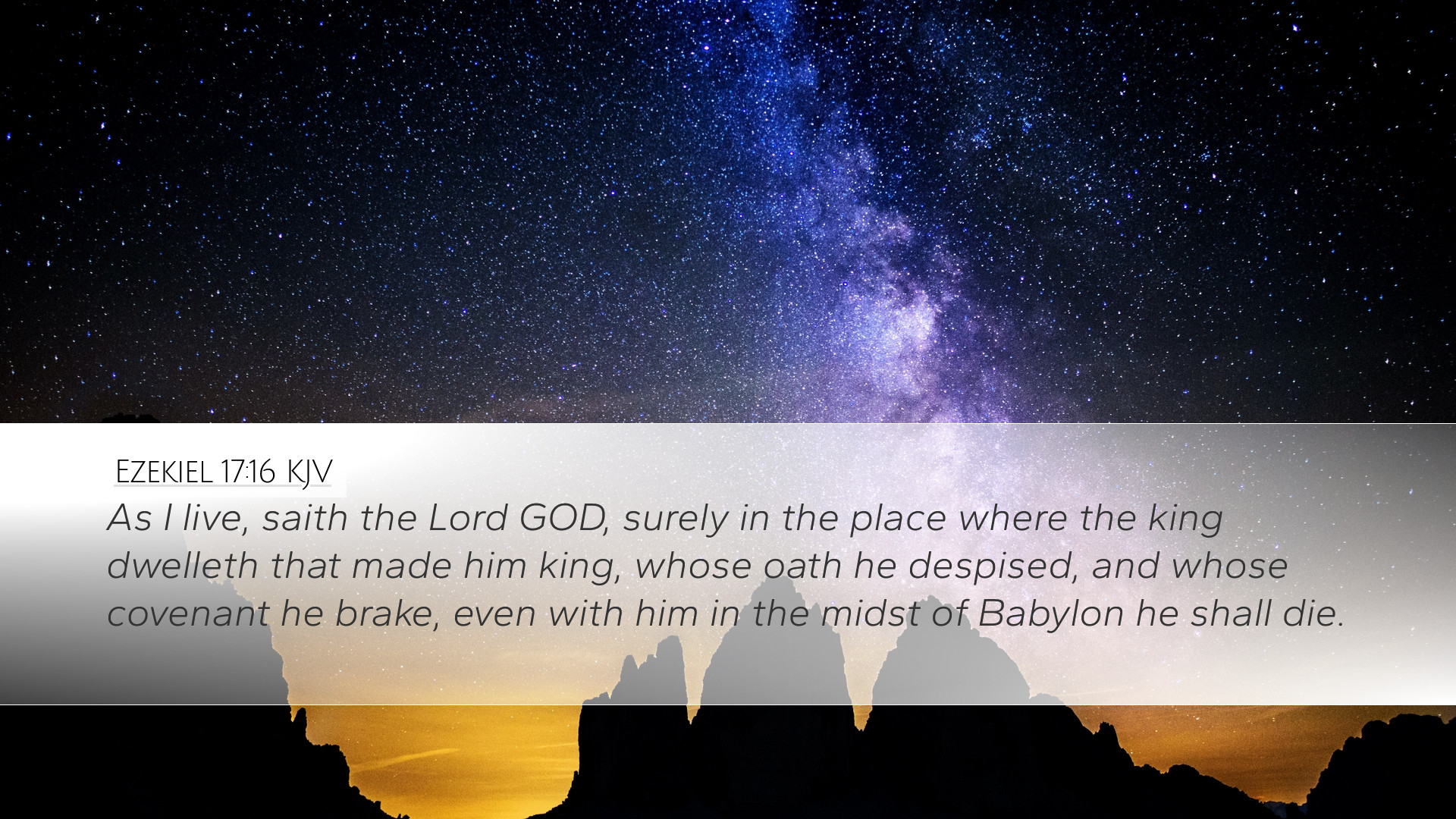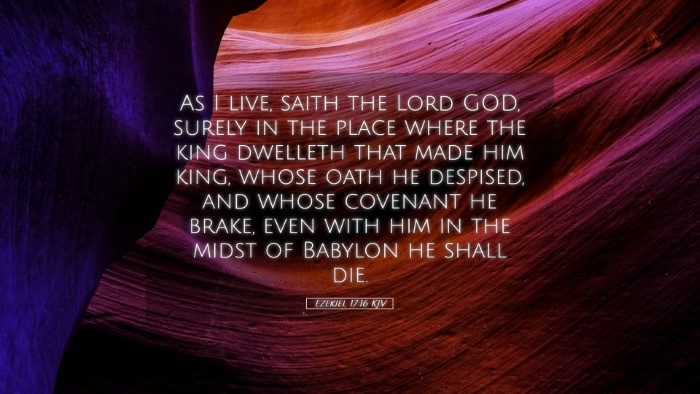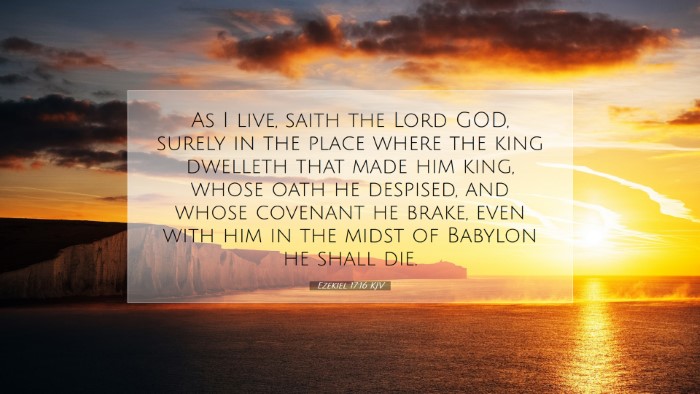Commentary on Ezekiel 17:16
Ezekiel 17:16 (KJV): "As I live, saith the Lord God, surely in the place where the king dwelleth that made him king, whose oath he despised, and whose covenant he brake, even with him in the midst of Babylon he shall die."
This verse is a profound statement made by the Prophet Ezekiel, emphasizing the consequences of treachery and disobedience towards divine commands and covenants.
Context and Background
Ezekiel prophesied during the Babylonian exile, a time when the people of Israel were grappling with the realities of their sin and the resultant judgment of God. The imagery in Ezekiel 17 uses the figure of a tree that represents the Davidic kingdom, cultivated and nourished by God, yet ultimately failing due to the betrayal of kings and the people.
Thematic Insights
- Divine Sovereignty: God's declaration "As I live" emphasizes His eternal existence and immovable authority. The commitment of God to uphold justice is underscored in the assurance that the consequences of actions will manifest.
- The Weight of Oaths and Covenants: The verse speaks to the gravity of covenants and the implications of breaking sacred promises, particularly touching on the fate of Zedekiah, the king of Judah, who swore allegiance to Babylon but later rebelled.
- Judgment and Consequence: The consequences foretold for Zedekiah—his death in Babylon—serve as an admonition to acknowledge God’s authority and to keep one’s vows seriously. The Lord reveals that despite the apparent power dynamic in Babylon, His judgment is sovereign.
Commentary from Matthew Henry
Matthew Henry emphasizes that this verse illustrates the fatal consequence of forsaking divine instructions and the grave danger associated with breaking covenants. He notes that Zedekiah's fate is a reflection of God’s justice, as he chose to disregard the oath he took before God and men. This summary not only reflects on Zedekiah's specific actions but also serves as a general warning to all people regarding the sanctity of their commitments.
Insights from Albert Barnes
Barnes interprets the verse as a stern reminder of God’s watchful eye over human affairs, especially where covenant responsibilities are concerned. He elucidates the themes of integrity and accountability, highlighting that leaders, in particular, cannot evade the consequences of their decisions. The message reverberates through history; the lessons from Zedekiah serve as a guide for leaders today to remain faithful to their commitments.
Reflection from Adam Clarke
Adam Clarke provides a detailed theological reflection on the nature of divine justice exemplified in this text. He points out that the oath of Zedekiah—made under duress and later violated—serves to illustrate God’s fidelity to His own promises, even when human leaders fail. Clarke emphasizes the duality of God’s character: He is merciful yet just, and His holy nature will not allow for injustice to go unpunished. This duality encourages believers to trust in God's ultimate plan and justice.
Applications for Today’s Believers
- Integrity in Promises: Believers are reminded of the importance of integrity in their commitments, viewing their promises through a spiritual lens, understanding ultimately that God holds them accountable.
- Authority and Accountability: Church leaders and teachers are especially admonished to lead with integrity, knowing that their actions have repercussions not only for themselves but also for those they influence.
- Trust in God’s Sovereignty: In times of turmoil and adversity, believers can find solace in the truth that God is sovereign over all events, and His justice will ultimately prevail.
Conclusion
Ezekiel 17:16 serves as a sobering reminder of the seriousness with which God regards oaths and the grave consequences of breaking these commitments. Through this verse, we are called to reflect on our own lives, our promises, and our covenant with God. As we seek to honor Him in all aspects of our existence, may we be ever mindful of His justice and mercy, understanding that even in judgment, God’s ultimate purpose is restoration.


